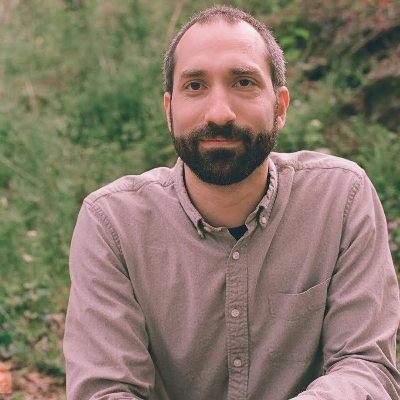If we had to put a label on Bernalito Díaz, we might very well call him an empirical ethologist; that is to say, an amateur scholar of animal behavior in relation to human conduct. “On the inside, of course, we’re all machines, and each component works in perfect harmony so that the machine responds accordingly. Two guys playing chess are like two antelopes locking horns,” he’d say while he cleaned his teeth with a piece of wire. “At an orphanage, for instance, babies cry exactly like cats in the midst of nocturnal copulation. One cries for a bottle, the other to express its painful passion on the rooftops. Nevertheless, the sounds are the same. Thus, the sexual language of felines gave rise to our language. Yes, it should come as no surprise,” he’d explain with his austere and carefully considered gestures, always surrounded by thin and shabbily dressed young men absorbed in what seemed like a parable or, rather, an unusual lecture on empiricism.
“A horse in its stable, swaying from side to side, emptying itself of urine and manure simultaneously, inspired Pollock’s famous drip paintings, and his paintings were associated with pragmatism” he’d continue nimbly, uttering each word as if it were the last. “Hindus believe it was neither a horse nor a cow, but rather an elephant. In that sense, any hypothesis is valid,” he’d add. And he’d say everything as if it were of no importance, with his gaze not on his interlocutors but elsewhere—the sky, the wall of the house across the street, a passerby, or a dead point in the air—as if he were actually seeing what he was saying. “While watching his neighbor’s sheep graze, a bourgeois landowner got the idea to use their thick coats as a model to invent the white wigs of Louis XVI’s era. With that, he and his peers formed their own flock and set themselves apart from the rest of the animals, regarding themselves as the aristocracy.”
Wiping the sweat from his brow with the sleeve of his jacket, he’d continue placidly: “The guided tours of museums, to give just one example, originated from anatidae birds, especially domestic ducks and their peculiar form of ambulation. The guide walks happily along, repeating their spiel, and the visitors follow behind like obedient offspring,” he’d say, then pause for a moment to clear his throat with a coy cough or to cross and uncross his legs. “Lions offer a great model of altruism within the animal kingdom by protecting each other almost selflessly, just as families, the mafia, and gangs have always done. As for primates, don’t get me started, they’ve been imitated so much that sometimes I feel like there are no differences left.”
“Without laying hens, there’d be no grannies sewing in their comfy armchairs by the light of a cute little lamp hanging over their whitened heads. From the behavior of certain insects—ants, among them—the idea for military parades, marches, large protests, and worker movements arose. From the praying mantis and its peculiar manner of copulating came the first outbreaks of sadomasochism,” he’d recount, now pulling up his pant leg to check for any stains or splatters, revealing thick tufts of dark hair between his cuffs and the top of his shoes, since, by the way, he never wore socks.
The thing is, Bernalito Díaz was convinced that human beings would have never become what we are if it weren’t for animals. With his carotids sticking out of him like tubers, he’d firmly claim that ever since Adam had seen the first animal prowling nearby, he’d begun to imitate it, believing that it was the most logical thing to do, since he thought it had to be that way, that the species he encountered in his path were his guides. But what happened is that then we all showed up, and in the blink of an eye we acquired the habit (one of many) of imitating our parents who, from this perspective, had already imitated their grandparents, great-grandparents, great-great grandparents… and they, in turn, had imitated hundreds, thousands, and millions of ancestors. “What was once something new became a habit,” he’d claim.
One day, during one of his many open-air lectures, he boldly rejected the idea that zoophilia was a sexual deviation or something perverse. Instead, he proposed that it was a return to the human being’s original condition, where savagery was an accepted way of life. The concern among zoologists and animal husbandry experts for their “precious object of imitation” became intertwined with the altruism of veterinarians and ecological activists, with their “Friends of…”, and this resulted in all of the animals’ needs being met, except for the sexual one.
Bernalito Díaz believed that the hippie movement and the eccentricity of the New Age had been decisive in this regard, due to their obsessive zeal for living in total contact with nature. “We all know that after imitation comes the desire for participation, and later the desire for self-improvement,” he’d state with a smile, shamelessly displaying his crooked teeth and flicking his long tongue as if he were about to engage in an imaginary bout of cunnilingus. Thus Bernalito Díaz considered the concept of dehumanization and its derivatives obsolete. The fact that in every part of the world you could adopt, with legal paperwork and all, an animal of your own choosing was merely a way of thanking them for their influence and all their teachings. Yes, it seemed ridiculous, but at least it gives you something to think about.
“That’s why children aren’t as necessary anymore; neither are couples. People want to avoid all the annoyances caused by human beings, so they look for substitutes in loyal and submissive animals.” No one could quite explain why Bernalito Diáz was so fascinated by the subject; no one knew where he had found so much material to support his hypotheses. The truth is that if I actually devoted myself to communicating everything he believed and discussed, I wouldn’t have enough time, and there’d be no shortage of people calling me a charlatan and accusing me of exaggeration.
Come to think of it, when Bernalito Díaz wanted to elaborate on his explanations, he’d often recur to anecdotes about Diogenes of Sinope, nicknamed The Dog. This cynical philosopher had begun to imitate dogs so much that he drank water out of puddles, ate from a bowl, slept in a barrel, and relieved himself in front of everyone, without any concern for the time or the place. Bernalito Díaz would scratch at his testicles over his corduroy pants while he recounted these things and at times, like I’ve already mentioned, his gaze would drift off into the distance. When he returned to himself, he’d add: “Diogenes decided to become an animal after he saw a little mouse running around like crazy without getting anywhere. Apparently, the rodent wasn’t searching for a place to sleep, wasn’t afraid of the dark, and didn’t desire anything that would be considered desirable. It was looking for something even more profound and intangible. And so, the philosopher became a believer and shaped his return to nature, to a life of authenticity.”
This was another angle Bernalito Díaz used to demonstrate that our archetypes, idols, and icons are undoubtedly animals. And if most people don’t want to see it this way, it’s because most people have always been wrong. In his opinion, to dehumanize ourselves was to take the return train home with the necessity and urgency of meeting ourselves. Not the animal that protects us, like nahuales, but rather the animal that we carry inside us, the one that we imitate and then take over.
On the day Bernalito Díaz left the earth, his family members asked those attending his wake to dress up like animals. Domesticated and wild, together in harmony. That had been one of his final wishes. As his comrade and implicit disciple, I took it upon myself to ensure this happened. With all due respect to him, and just as he would have done, I dared to organize a solemn reenactment of the animals’ entrance onto Noah’s Ark, and carried it out with the attendees. In addition, to enhance the event, we encouraged each animal to make their respective sounds: an onomatopoeic concert that reached its climax when scenes of courtship and mating occurred unimpeded. One thing led to another. The power of the sounds, the call of the jungle.
He was supposed to be buried at the National Zoo, but his relatives were denied permission; this was a major blow for those of us who only wanted to fulfill his post-mortem wishes. With unusual zeal, his sister insisted, proposing that they could offer him as food to the crocodiles or tigers, arguing that this would be better than incinerating him and that her brother would see it as something… sacred. “If necessary, we can pay with some cacao seeds or ears of corn; ask for whatever you want.”
As expected, her pleas went unheard.



